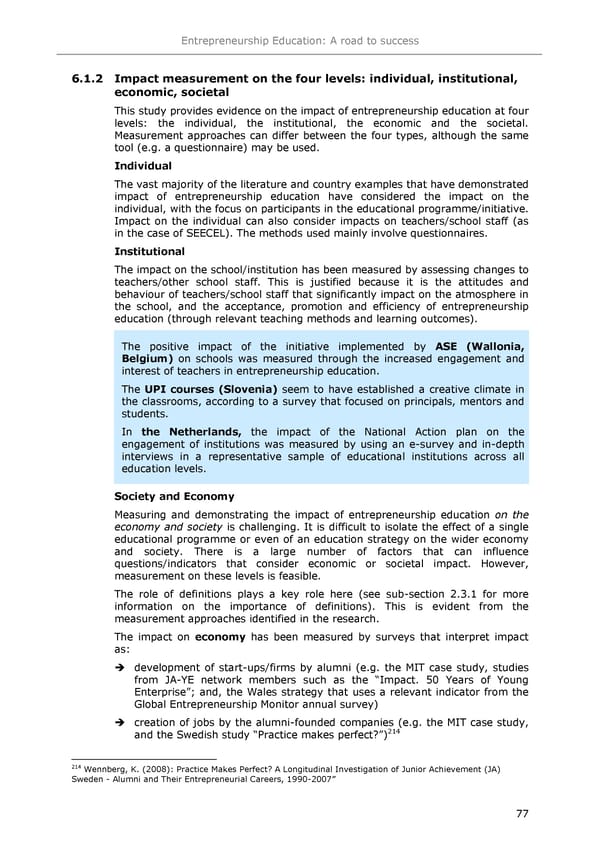Entrepreneurship Education: A road to success 6.1.2 Impact measurement on the four levels: individual, institutional, economic, societal This study provides evidence on the impact of entrepreneurship education at four levels: the individual, the institutional, the economic and the societal. Measurement approaches can differ between the four types, although the same tool (e.g. a questionnaire) may be used. Individual The vast majority of the literature and country examples that have demonstrated impact of entrepreneurship education have considered the impact on the individual, with the focus on participants in the educational programme/initiative. Impact on the individual can also consider impacts on teachers/school staff (as in the case of SEECEL). The methods used mainly involve questionnaires. Institutional The impact on the school/institution has been measured by assessing changes to teachers/other school staff. This is justified because it is the attitudes and behaviour of teachers/school staff that significantly impact on the atmosphere in the school, and the acceptance, promotion and efficiency of entrepreneurship education (through relevant teaching methods and learning outcomes). The positive impact of the initiative implemented by ASE (Wallonia, Belgium) on schools was measured through the increased engagement and interest of teachers in entrepreneurship education. The UPI courses (Slovenia) seem to have established a creative climate in the classrooms, according to a survey that focused on principals, mentors and students. In the Netherlands, the impact of the National Action plan on the engagement of institutions was measured by using an e-survey and in-depth interviews in a representative sample of educational institutions across all education levels. Society and Economy Measuring and demonstrating the impact of entrepreneurship education on the economy and society is challenging. It is difficult to isolate the effect of a single educational programme or even of an education strategy on the wider economy and society. There is a large number of factors that can influence questions/indicators that consider economic or societal impact. However, measurement on these levels is feasible. The role of definitions plays a key role here (see sub-section 2.3.1 for more information on the importance of definitions). This is evident from the measurement approaches identified in the research. The impact on economy has been measured by surveys that interpret impact as: development of start-ups/firms by alumni (e.g. the MIT case study, studies from JA-YE network members such as the
 Entrepreneurship Education Page 80 Page 82
Entrepreneurship Education Page 80 Page 82